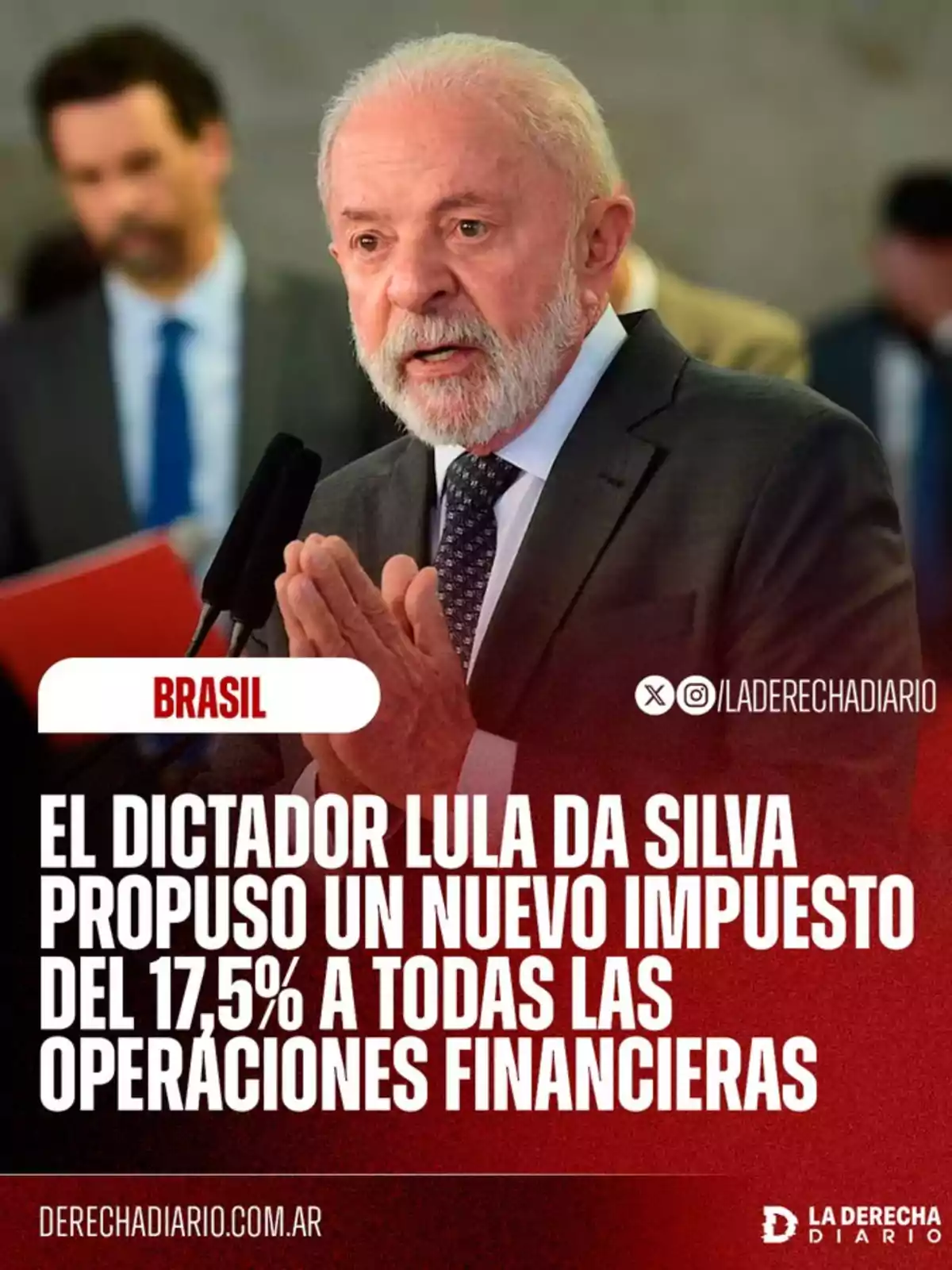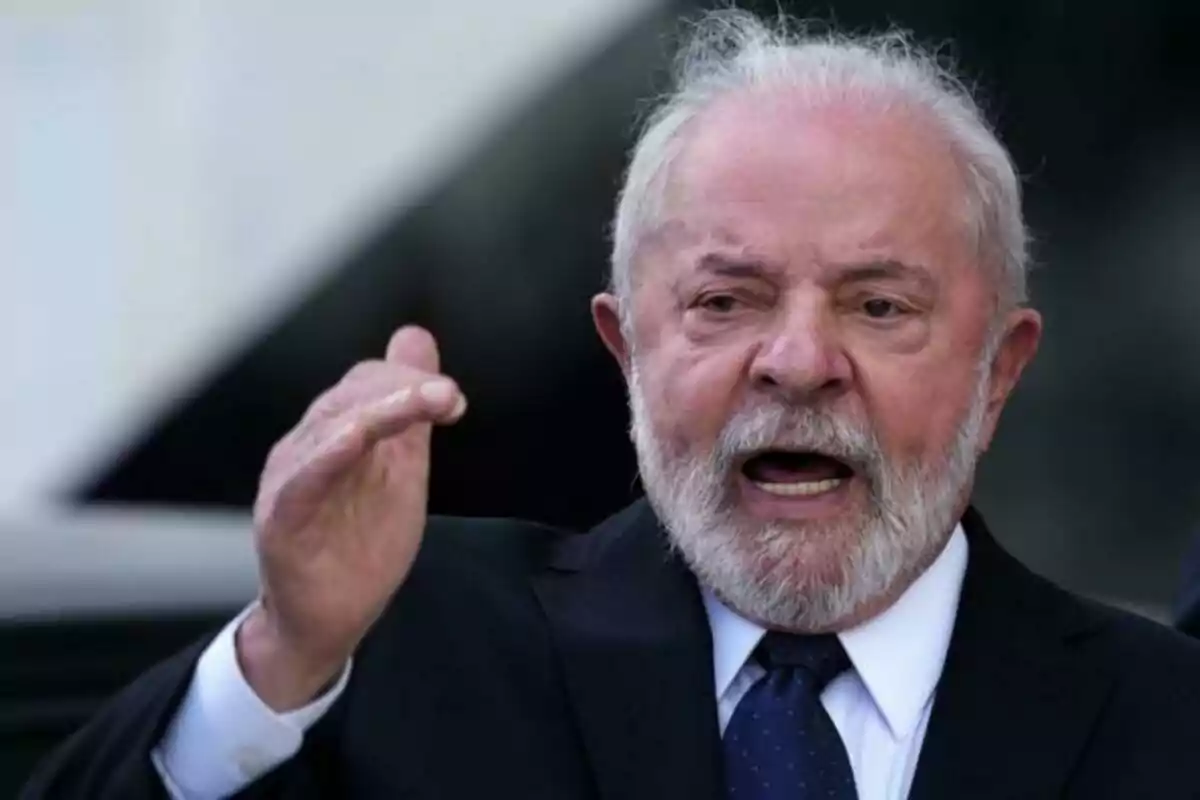
Lula da Silva proposed a 17.5% tax on all financial transactions.
The socialist dictator seeks to destroy those investors who choose to bet on the Brazilian financial market
The government of the socialist dictator Lula da Silva is moving forward with a new fiscal package that includes a sharp tax increase, generating concern among investors, economists, and productive sectors.
Under the pretext of “correcting market distortions” caused by the government's own intervention, the Ministry of Finance, led by Fernando Haddad, is proposing changes to the Income Tax (IR) that, far from encouraging saving and investment, penalizes those who choose to bet on the Brazilian financial market.
Currently, the IR applied to investments decreases according to the duration of the invested capital, rewarding those who keep their money in the system for extended periods: 22.5% for investments of less than six months, 20% for those up to one year, 17.5% for those up to two years, and 15% for those exceeding 720 days. The new scheme aims to eliminate this incentive and set a single rate of 17.5%, regardless of the term.

This decision will completely ignore the role that tax incentives play in building a solid and stable economy. By eliminating the differential based on the investment term, the attractiveness of long-term projects is weakened and competitiveness compared to other emerging markets is reduced.
The measure would also apply to investments in crypto assets, including high-frequency operations such as day trading, and would extend a 5% IR to instruments currently exempt such as Real Estate Credit Bills (LCI), Agribusiness Credit Bills (LCA), Real Estate Receivables Certificates (CRI), and Agribusiness Receivables Certificates (CRA).
These instruments, essential for the development of key sectors such as construction and agribusiness, will become taxable, making financing more expensive and reducing the profitability of these productive sectors.

Meanwhile, Lula's government also plans to increase the tax burden from 12% to 18% on companies operating online betting. This measure seeks to offset the loss of revenue resulting from the review of the IOF (Tax on Financial Operations) increase, which makes it clear that the main objective is not a comprehensive or fair reform, but simply to collect more.
In a context where Brazil is facing a severe economic crisis, rising inflation, and a historic fiscal deficit, these decisions by Lula's government seem to be heading in the opposite direction. Far from solving the underlying problems, they only manage to increase taxes and uncertainty.
More posts: